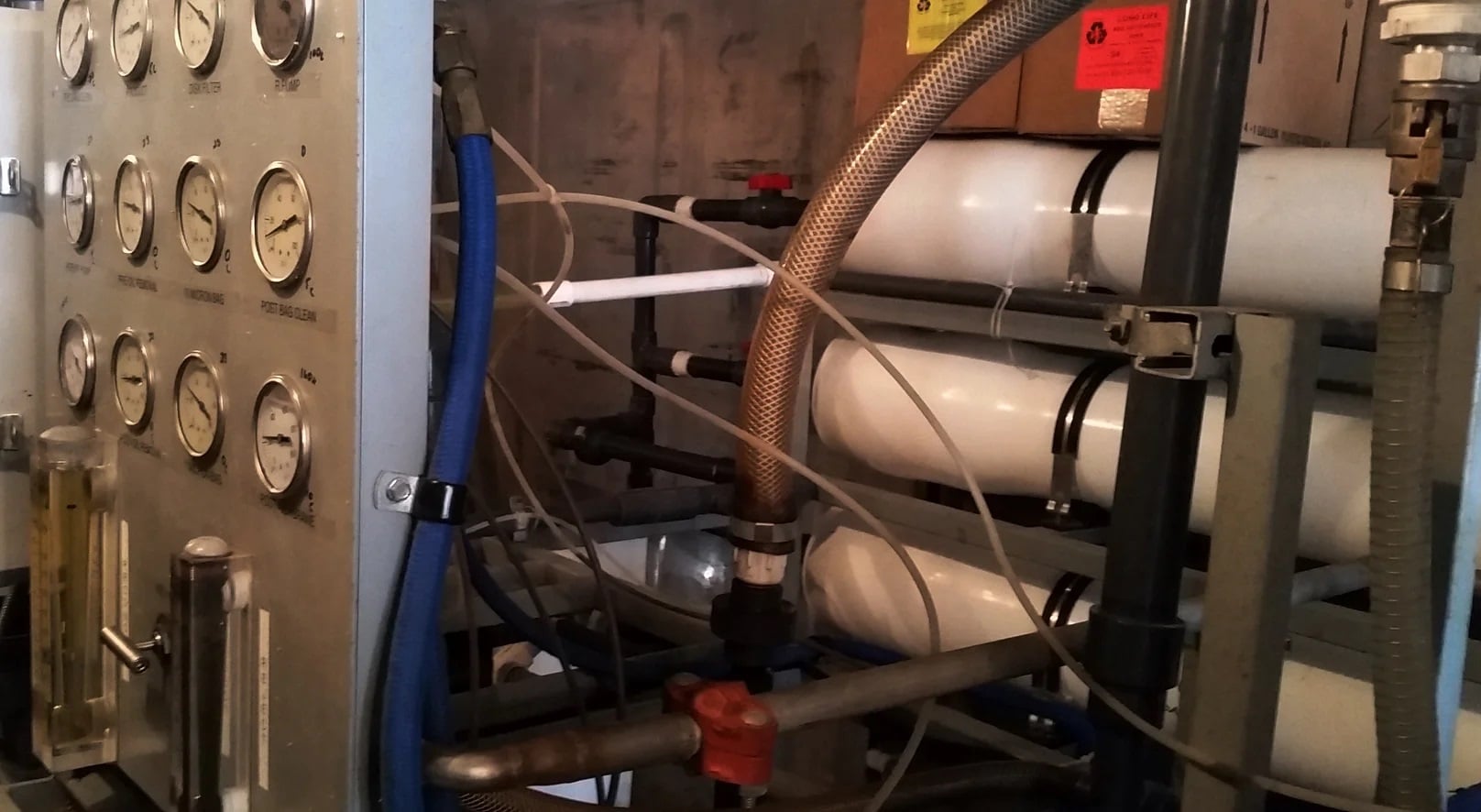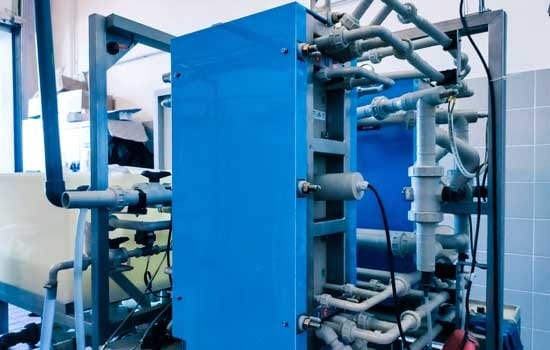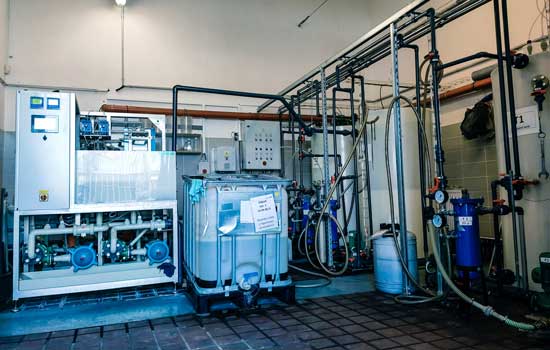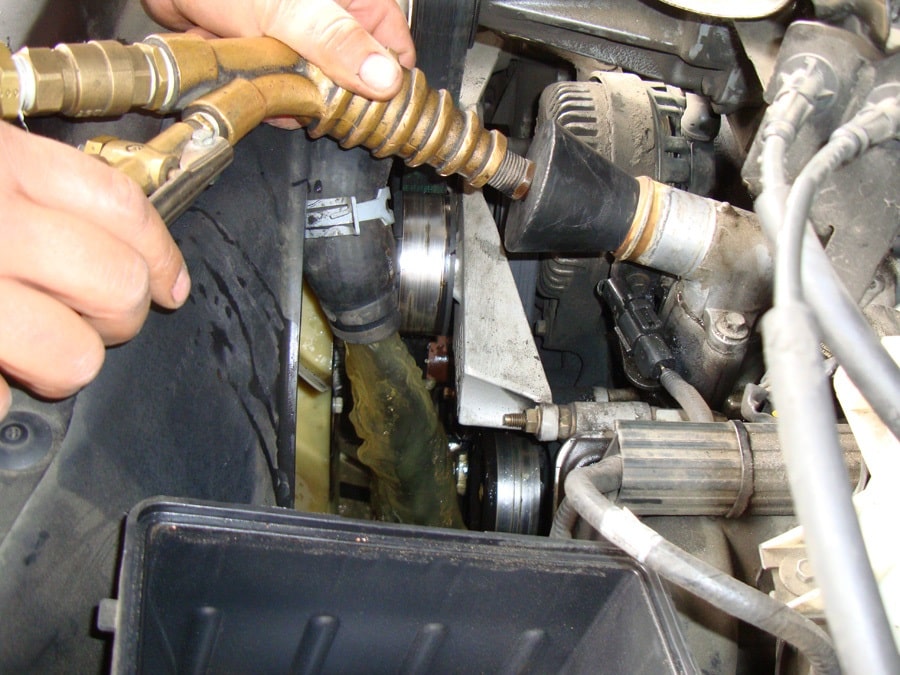If you have antifreeze and are not sure how to dispose of it, recycling it is the best option. While the coolant is completely reusable and recyclable for up to eight years, there is a complicated process to re-purify it. In this article I will discuss where and how to recycle it, the process, the benefits, and frequently asked questions. I will also share my experience with the place that does antifreeze recycling near me.
Map of Antifreeze Recycling Near Me
For “Antifreeze Recycling Near Me”, or “Coolant Recycling Near Me”, see the map below…
What is Antifreeze?
Antifreeze, also called coolant, is a chemical liquid that assists in regulating your motor during extreme temperatures. It also helps to prevent corrosion. You can read more about its function here from Valvoline.
Positive Impact of Antifreeze Recycling
Antifreeze recycling near me has had a profoundly positive impact on the environment and local communities. The process of having antifreeze recycled locally not only conserves resources but also mitigates potential hazards. Instead of being disposed of in a hazardous waste facility, used antifreeze is now being responsibly collected and recycled, reducing the potential harm to the ecosystem.
By employing recycling facilities, we ensure that the process is conducted efficiently and safely, avoiding environmental harm. Here, antifreeze recycling not only prevents spills but also minimizes the need to mix antifreeze with hazardous substances, reducing potential engine damage.

This approach aligns with the broader trend of recycling and repurposing automotive fluids like motor oil and brake fluid, turning what was once a hazardous waste item into an environmentally responsible practice that benefits us all.
Additionally, recycling helps minimize the disposal of used antifreeze and its mixing with other wastes like used oil, thereby promoting a more sustainable approach to managing automotive fluids. This not only safeguards the ecosystem but also prevents engine damage, extending the life of vehicles and contributing to a cleaner, greener future. The responsible use of drain pans and recycling centers ensures that the benefits of antifreeze recycling are felt not just near us but for generations to come.
Where Can I Recycle Antifreeze Near Me?
Antifreeze can be disposed of safely and responsibly in a variety of ways, such as by taking it to some service stations and auto repair shops. Not all shops, will take it, but there are those that do. It may depend on how much you have.
However, if you’re looking to get it recycled, in particular, then the best thing to do is look for a local recycling station that accepts antifreeze.
Tainted Antifreeze Can’t Be Recycled…
It’s important to make sure that you’re aware of whether or not the antifreeze is simply old or has been tainted. Some places may accept used or old antifreeze, but tainted antifreeze might have heavy metal traces within it, so not as many stores are willing to accept it. The same is true if it is tainted with oil or gas.
In those cases, it is more likely that you will have to rely on the services of a commercial waste hauler and ask about hazardous chemical disposal.

How is Coolant Recycled, What’s the Process?
Antifreeze that hasn’t been opened often doesn’t necessarily need to be recycled and, even when opened, it’s typically good to use for another eight years. In fact, Junkyards drain it from junk cars, bottle it, and resell it.
However, beyond that, antifreeze should be recycled to make sure that it’s not disposed of carelessly and to ensure that it can be used once again.
Once you have found a store or recycling center that accepts antifreeze, what do they do with it?
Typically, antifreeze is recycled simply by purifying it, or by removing any of the particles or traces of heavy metals that might be within it. This is done through methods like vacuum distillation, a process by which antifreeze is drawn into a drum, boiled to remove water, and then heated to vaporize the ethylene glycol.
Positively charged ions are used to draw the contaminants out of the antifreeze before it is cooled back down into a liquid. There are other methods of recycling antifreeze, but this is a commonly used example.

Can I Sell Used AntiFreeze Near Me?
You might be thinking, as with many used auto parts, that you could simply sell the used antifreeze. After all, it still has some value when it is used, and you can sell used motor oil, so why shouldn’t you make a little money from it?
However, the process of recycling and refining used antifreeze into recycled antifreeze is a process that takes some work. It uses specialized methods and, as such, not every auto shop and service station will take it.
In fact, in many places, there is a fee to have them take used antifreeze off your hands to make sure that it’s disposed of properly. According to HowMuchIsIt.Org, coolant disposal costs on average between $0.10 and $0.40 per pound.
As such, you cannot, in most cases, sell used antifreeze. That’s not to say that there might not be someone somewhere willing to pay to take it off of your hands. Generally, though that shouldn’t be your antifreeze disposal game plan.
Can I Dump Anti-Freeze Down the Drain?
Regardless of what condition it is in, or how easy or difficult you find it you should never, under any circumstances, pour antifreeze down the drain. It can cause catastrophic damage to wildlife and the environment. Plants, pets, and humans can all be impacted by it.
Antifreeze contains toxic chemicals including methanol, ethylene glycol, and propylene glycol. Used coolant can be further contaminated with metals, including toxic metals like lead. Aside from their toxicity, many of these components, once introduced to the environment, can impact the ecosystem for a long time. In the case of toxic metals, many of them do not ever degrade entirely, but will instead leech into the surrounding environment.
As such, antifreeze can end up poisoning animals, but it can also end up in local water supplies if it’s introduced to the local plumbing. What’s more, antifreeze has a distinctly sweet smell. It’s not uncommon for animals to be attracted to the smell, going as far as going into storm drains to find the source and getting poisoned.
Cleaning Up a Coolant Spill…
Even if you accidentally spill antifreeze, you should make sure to clean it up as soon as possible. Even in this event, it never should be sent down the drain to dispose of it.
Sand, baking soda, and even kitty litter can be used to soak it up. You should put paper towels over it to collect it for roughly two hours before you bag and dispose of them away from anywhere that pets or wild animals are likely to get. Scrub the area where the antifreeze was spilled with water, liquid soap, and a scrubbing pad before rinsing with water.

Can I Put AntiFreeze on The Curb for Recycling Near Me?
In some cases, you might not have to take your antifreeze anywhere. You should check if you have any curbside recycling services in the area and if they accept antifreeze. If they do, then they should provide guidelines on the best way to store and leave out any used antifreeze that you want to have picked up.
In most counties that pick it up, it is required to be placed into a screw-top see-thru plastic jug.
One important point is to make sure that if you’re leaving out both antifreeze and other waste such as used motor oil, you should ensure that you keep them in separate containers. When stored together, the two can contaminate each other to the point that they become unusable.
The Benefits of AntiFreeze Recycling
From the information above, hopefully, some of the benefits of recycling antifreeze become clear. For one, you can make sure that you’re potentially leading to disaster by poisoning the environment, water supply, or local wildlife by leaving it out or dumping it down the drain. You can rest a little easier knowing that you don’t need to keep the toxic chemicals in your own home for too long either.
Of course, another major benefit is the fact that you’re helping to recycle the ingredients used in antifreeze so that they can be used again. As such, if people didn’t recycle antifreeze, then a lot more chemicals and natural resources would have to be used to create even more new antifreeze, leading to exponentially higher levels of waste.
Antifreeze Recycling Near Me Conclusion
Coolant recycling isn’t that difficult considering you have options such as recycling facilities, car service stations, and some counties with curbside pickup. Anti-freeze though should be always treated with special care as it is a hazardous chemical. This is what I have learned from the places that do antifreeze recycling near me.
